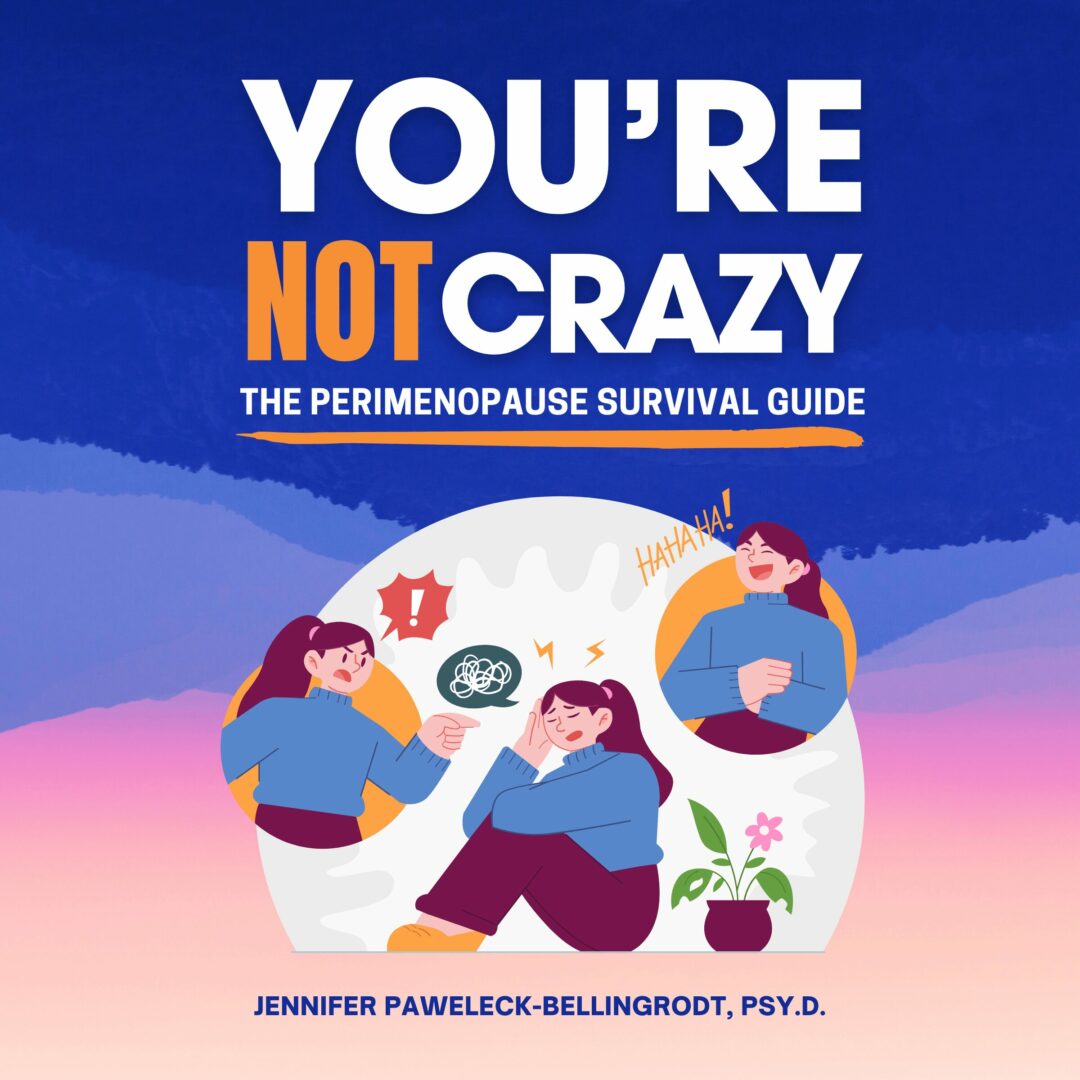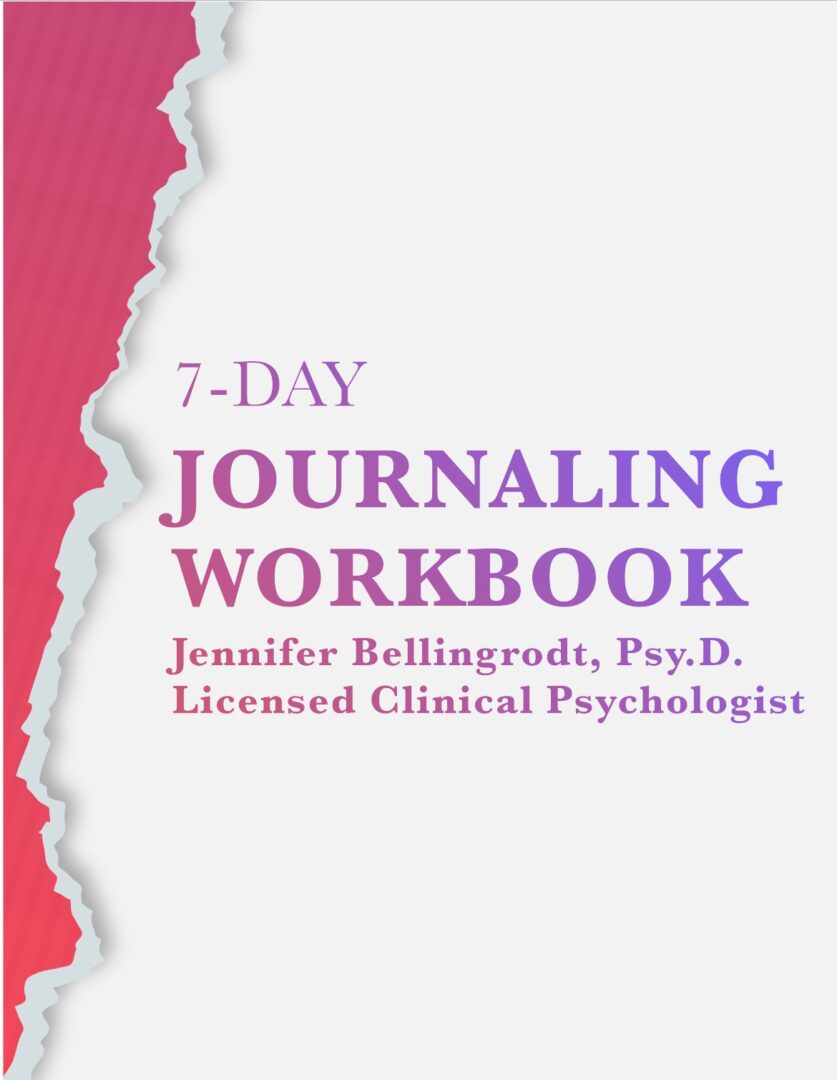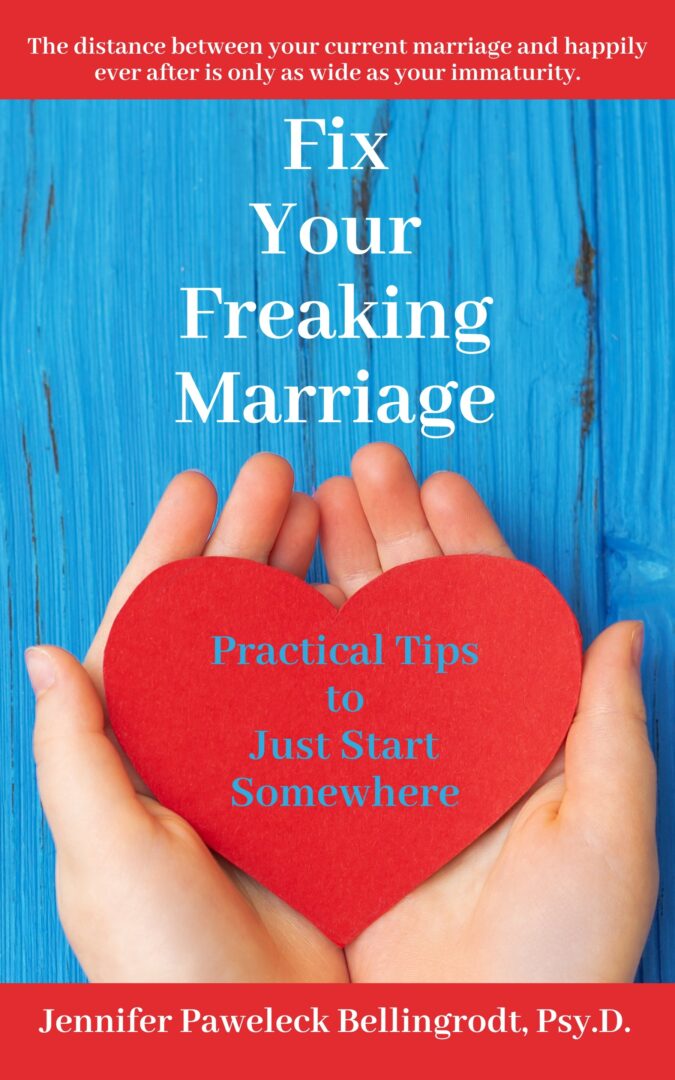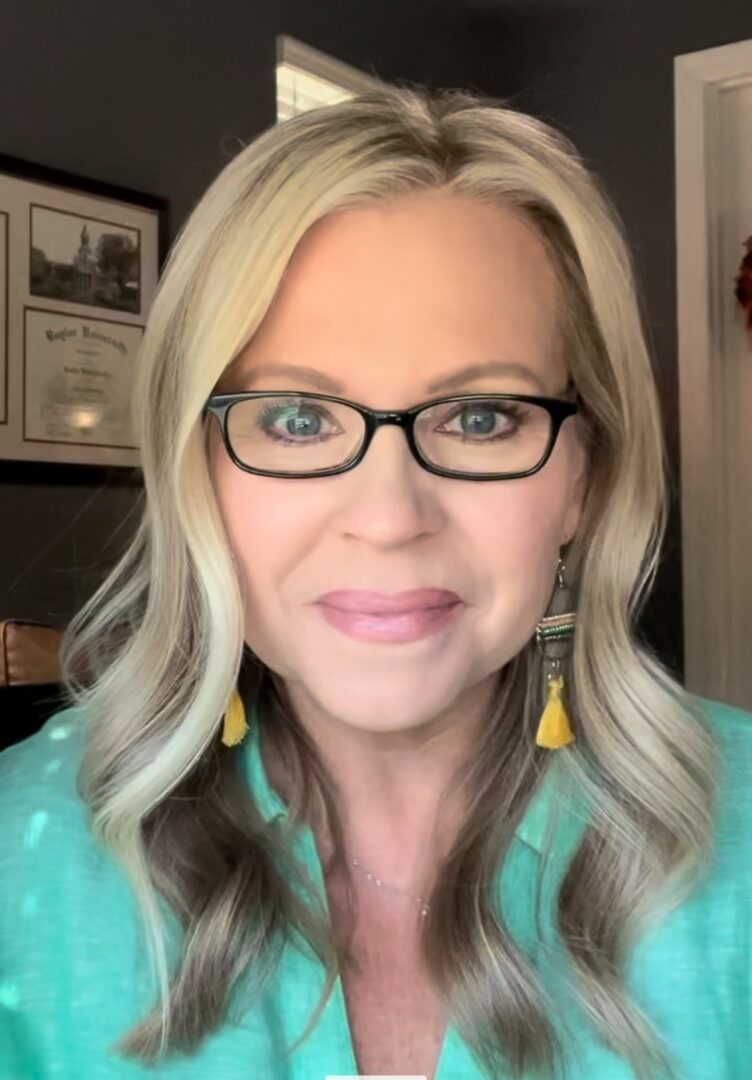We’re looking forward to introducing you to Dr. Jennifer Paweleck-Bellingrodt. Check out our conversation below.
Jennifer, it’s always a pleasure to learn from you and your journey. Let’s start with a bit of a warmup: What are you being called to do now, that you may have been afraid of before?
For a long time, I’ve been encouraged to build out a coaching opportunity that’s accessible to more people than therapy may feel to them. Just this week, I finally put together a coaching package that will help people get out of their own way and into a life they love. Across 8 weeks, we’ll unpack and rewire the core beliefs stuck in their subconscious mind that block their success in whatever way they define it. I’m really excited about it! Here’s what it entails:
1. Trace beliefs to past experiences.
2. Identify beliefs that no longer work.
3. Revisit the past with a new, empowered lens.
4. Update the meaning of the past and reclaim agency.
5. Learn skills to set values-aligned intentions.
6. Replace self-limiting beliefs with self-actualizing ones.
7. Normalize slip-ups as learning opportunities.
8. Develop a personalized relapse recovery routine.
Can you briefly introduce yourself and share what makes you or your brand unique?
I’ve been a psychologist for over 20 years, first in the military and then in private practice in the civilian sector. Through an agreement known as Psypact, I’m able to practice in most states in the U.S., which helps me reach people from all over the country with crucial mental health information.
I’ve been told that I have a helpful ability to take complex psychological concepts and distill them into manageable bits of information that are easy to comprehend, which I take as a huge compliment. I’m also very well-versed in helping people identify and overcome the negative core beliefs they developed in childhood so that they can live the life of their dreams.
I get most excited about working with people with personality disorders. These patients are often very unhappy and dissatisfied in their lives and frequently are near the point of losing hope that they can get better and live life differently. They generally have significant interpersonal issues, which means they don’t have the social support that helps guard against psychological distress. I love being able to show them that there’s a different way, that they can offset maladaptive patterns and change their cycle of thought-feeling-behavior to live a more fulfilling, less tumultuous life, regardless of how long they’ve been doing it their way or how traumatic the road was that landed them there in the first place.
So far, I’ve published two books, one on relationships called “Fix Your Freaking Marriage: Practical Tips to Just Start Somewhere” and one on perimenopause called “You’re Not Crazy: The Perimenopause Survival Guide.” I’m currently working on my third book, “Get Over It: The No-Nonsense Guide to Transforming Betrayal Pain into Lasting Power.” I’ve also already started my fourth book, which is about overcoming the seven self-limiting beliefs that block success in all areas of life. In addition, I host a podcast called “The Psych with a Mic” and maintain an online training platform at www.thepsychoeducationacademy.com.
Amazing, so let’s take a moment to go back in time. Who taught you the most about work?
I’d have to say that my paternal grandparents taught me a lot about work. They owned a chain of grocery stores when I was growing up, and I spent a lot of time with them at the various stores. They demonstrated entrepreneurship and a strong work ethic, and those things really stuck with me. I knew early on that I wanted to own my own business, and I believe they had a lot to do with that.
Is there something you miss that no one else knows about?
I really miss my time in the U.S. Army. I enjoyed every minute of my brief time with the military. Not only did I cultivate a “framily” at my duty station, but I was also in the best shape of my life. I worked with people with similar goals and a strong desire to help people, which made my job not feel like “work.” Most importantly, the Army taught me what I was capable of, both physically and mentally. I look back on my years as a soldier as some of the best years of my life, hands down.
Alright, so if you are open to it, let’s explore some philosophical questions that touch on your values and worldview. What’s a belief or project you’re committed to, no matter how long it takes?
Helping people get out of their own damn way and into a life they don’t need a vacation from, whether that’s in their work via my executive coaching or just in their own mind via my therapy services. Helping people overcome their self-limiting beliefs and stepping into the life that God has for them is my mission, my purpose in this life, and I’ll do it until the good Lord calls me home!
Before we go, we’d love to hear your thoughts on some longer-run, legacy type questions. Are you doing what you were born to do—or what you were told to do?
People who know me well know that I don’t relish being told what to do, so my stubbornness has prevailed in my career life. I truly believe that I’m doing what I was born to do. Growing up, there were many suggestions made to me about what I should considering doing for a career, and I don’t recall that “psychologist” was ever one of them. From the moment I took a psychology class in high school, though, I knew that’s what I wanted to do with my life.
Contact Info:
- Website: https://www.doctorbellingrodt.com
- Instagram: https://www.instagram.com/thepsychwithamic/
- Linkedin: https://linkedin.com/in/jennifer-paweleck-bellingrodt-psy-d-5621a3146
- Facebook: https://www.facebook.com/jen.bellingrodt
- Youtube: https://www.youtube.com/@shrinkthinkwithdrjen
- Other:
TikTok: https://www.tiktok.com/@shrink.think
Train with Me: https://thepsychoeducationacademy.com/
The Psychoeducation Academy Page: https://www.facebook.com/thepsychoeducationacademy Relationship Book: https://a.co/d/2eRfkOn
Perimenopause Book: https://a.co/d/hQVAPz7







so if you or someone you know deserves recognition please let us know here.




